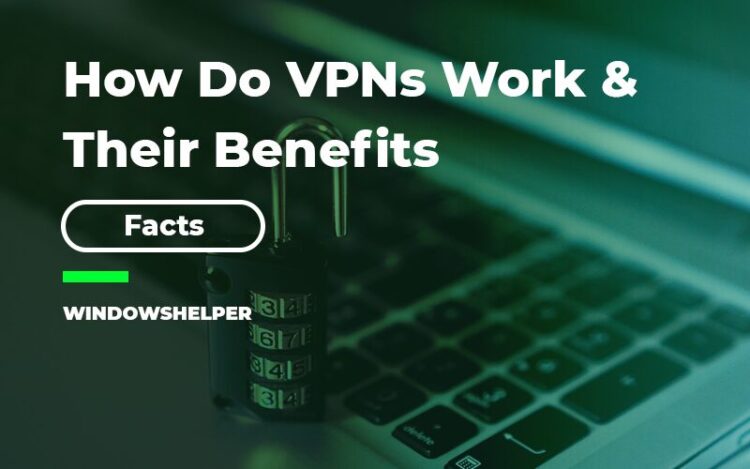Have you ever heard of VPNs? And do you know things behind VPNs such as how it works and their main benefits? You are here at the right place.
We will talk about how VPNs work behind and include the main advantages of using VPNs. Hope you can choose the best one for you by yourself after reading this article.

How Does a VPN Work?
Your computer, smartphone, or tablet will behave as though it is on the same local network as the VPN while connected to the VPN network over a wired or wireless internet connection click here if you want to learn more.
Virtual private network services divert your Internet traffic via a private server rather than an ISP. Network data is transmitted through a secure connection since the device acts as if it is connected to the same VPN server.
The moment you connect to a VPN server, all of your data is encrypted. Even your Internet service provider (ISP) or WiFi provider will not be able to identify this procedure since it is so rapid and seamless to the user experience. The VPN server transmits the encrypted data to its ultimate destination. The data is then decrypted.
When you use a VPN, your data is encrypted all the way until it reaches its ultimate destination. There is an encrypted connection created between your computer/mobile phone and the internet, protecting your personal information such as files downloaded from the internet or mobile applications used in standalone mode.
Advantages of using VPNs
Below are the main benefits when you use a VPN, no matter it’s a free VPN or a paid VPN.
Secure Financial Transactions
Virtual private network services are great for safe file sharing and online financial transactions as well. An online store will often have bank accounts and e-wallets available to customers. Unfortunately, it attracts cybercriminals since they know you’ll be using those accounts to make online payments and transfers.
The ideal level of security for online transactions is 256-bit encryption along with additional procedures. So you can be certain that your transactions are secure and can’t be connected to you.
Bypass Firewalls
Government-imposed firewall restrictions are responsible for the vast majority of online censorship. You can’t use any services that are offered to you since they aren’t available on your network or inside the premises of your business. That’s how your company or school’s network restricts access to social media and streaming services. The same approach often aids government officials in preventing the general public from seeing specific types of material.
The benefits of this filtering may be overshadowed by the drawbacks of being unable to do your normal activities without using a VPN.
By passing these firewall limitations is easy when using a VPN, which masks your IP address and device from the network service provider. As a result, the firewall will be unable to prevent you from visiting a website that would otherwise be inaccessible to you.
Despite this, make certain you utilize this function in an ethical and sensible manner.
Torrent Files Securely and Safely
When you pirate or use peer-to-peer file sharing, your actual IP address is visible to everyone else. In theory, they might use that information to determine your location, including which nation you’re in and what city you’re in. That information may not necessarily be an issue, but if you want to maintain your privacy and anonymity, it poses a security risk.
If you use a VPN, you may mask your IP address and remain anonymous online. If you wish, you may make yourself seem to be on the other side of the planet, making it impossible for anybody to track your IP address back to you.
We don’t condone illicit file sharing, and torrenting has a bad reputation for it. However, torrenting may be banned even when it is legal, such as when downloading Linux distributions. When using it over a VPN, you may avoid all of these problems without having to worry about the consequences.
Improve Internet Speed During Network Congestion
Network congestion occurs when there are too many individuals trying to use the same hotspot, application, platform, or website at the same time.
Because the server is attempting to handle far more traffic than it can manage, the whole network slows down and your requests are placed in a queue. In layman’s terms, this means that your internet speed has dropped precipitously.
It’s possible that network congestion is at blame if streaming a movie seems to take an eternity for no apparent reason. Bypassing the overburdened server node is possible when utilizing a VPN for Windows or any other operating system.
Disclaimer
Make sure to check local laws and regulations to determine whether using VPNs is permitted before implementing them. Although the guidelines are vague, they might be interpreted to mean that VPN services are restricted in China. It’s possible that the restrictions would target consumers who try to access restricted websites, but they might also be applied to firms with overseas offices. Russian virtual private network usage is not now prohibited, as far as I’m aware (VPNs). Conclusion: Research the laws of countries hosting VPN nodes to confirm that they are lawful and whether or not there are limitations that may impair privacy is essential
